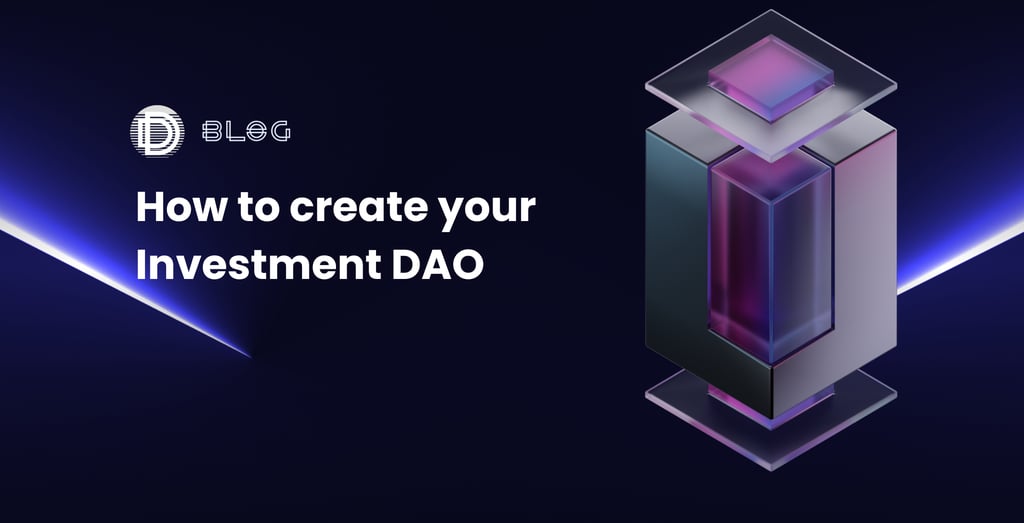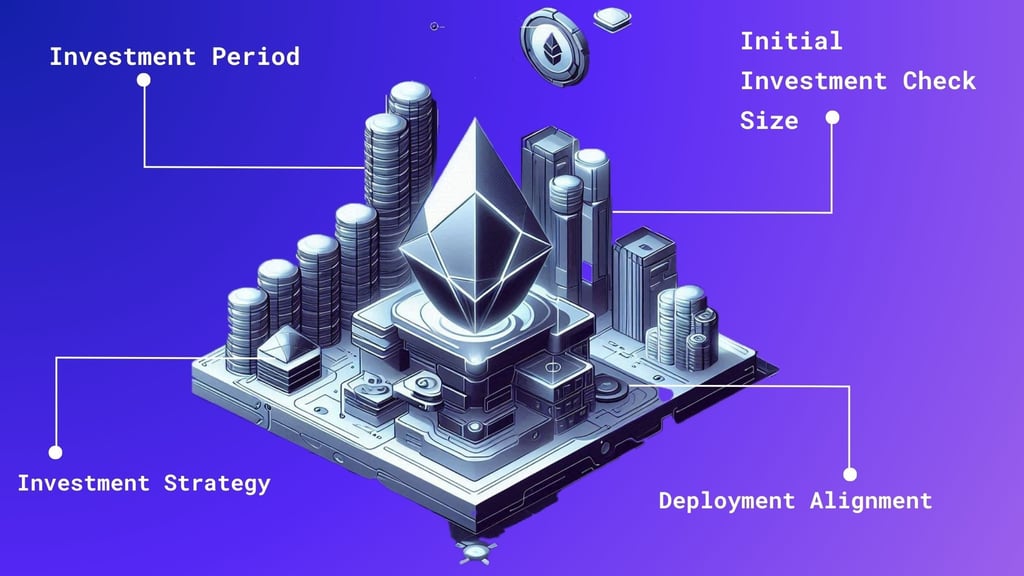
A Guide to Establishing an Investment DAO



The Investment DAO is a new participant in the dynamic field of decentralized autonomous organizations that promises to revolutionize the way we think about investing. But what is an Investment DAO precisely, and why is it catching the interest of both blockchain enthusiasts and investors?
What is an Investment DAO?
An Investment DAO is a type of organization created and run through smart contracts on a blockchain. It allows participants to pool their resources and make collective investment decisions, typically in cryptocurrencies or blockchain projects.
Essentially, an Investment DAO functions using smart contracts, which are self-executing blockchain-based computer programs. The DAO's operations, including how it accepts investment deals and divides profits, are governed by these contracts. An Investment DAO is unique in that it brings transparency and democracy to the investment industry. By using voting procedures contained in the smart contracts, DAO members collaboratively make investment choices as opposed to traditional VC that depend on a centralized team to deploy the funding.
Starting an Investment DAO -First Steps
Key design elements:
At the core of the DAO, there are several key elements to be taken into account. Understanding these elements provides insights into how the DAO operates, helping you shape it in a way that responds to your use case.
Governance:
In the DAO governance the token holders participate to voting using their tokens, which represent the voting power. The voting takes place during defined periods, and proposals must meet quorum requirements. A minimum number of votes or tokens is needed for a proposal to be valid.
Investment Terms:


Certain elements stand out when comes to the DAO’s investment terms, such as:
The DAO investment period, (which refers to the funds deployment period), might span between 1 to 7 years or even might have no limit, depending on the investors' community strategy and portfolio needs.
Initial investment check size refers to the amount of capital an investor contributes to the Investment DAO treasury.
Investment strategy - Investment DAOs can be focused on different startup stages and investment strategies. Early Stage Pre-Seed Investment DAOs support startups from ideation to market validation, while Series A, B, and C DAOs offer successive funding rounds for scaling. These DAOs diversify investments across cryptocurrencies, tokens, NFTs, and traditional assets, focusing on sectors depending on their investment thesis. Investment amounts vary, with diversification being key for risk management.
The investment deployment is usually done strategically, and aligned with project milestones.
Incorporation Setup:
Establishing an investment DAO involves choosing a legal wrapper, often in jurisdictions like Switzerland, the US, Dubai, Singapore, or others, each offering unique legal frameworks to support DAO’s growth. Staying compliant with regulations is crucial for the success of investment DAO operations.
Technical setup:
When it comes to community management within a DAO, the technical backbone often relies on the utilization of smart contracts. These contracts handle critical functions such as token distribution, voting mechanisms, and proposal execution. By recording all actions and decisions on the blockchain, they provide transparency, enhance security by eliminating single points of failure, and automate the enforcement of agreed-upon rules.
Aragon stands out as a leading platform designed for creating and managing DAOs. It offers a comprehensive suite of tools, emphasizing governance through features like voting mechanisms, token management, and treasury systems. With Aragon, users can tailor their DAOs to specific needs, benefitting from its user-friendly interface and pre-built modules for governance, voting, and treasury management.
On the other hand, DAOHaus provides a simplified approach for creating and managing MolochDAO-based DAOs. It streamlines the setup process, enabling quick customization of DAOs with governance parameters such as managing proposals, voting, and treasury functions. DAOHaus' user-friendly interface and integration with DeFi protocols make it an attractive choice for those seeking simplicity and accessibility in their DAO management.
Within these platforms, community managers play a pivotal role in ensuring the platform's success. They act as moderators, ensuring discussions adhere to community guidelines, and gather valuable feedback to enhance the DAO's processes.
Financial Management:
In the context of an investment DAO, where assets are pooled together for various ventures, meticulous financial management is crucial for maintaining investor trust, achieving sustainable growth, and maximizing returns. It provides the framework for budgeting, tracking expenses, managing treasury assets, and making informed investment decisions. Without robust financial management practices, an investment DAO risks instability, misallocation of funds, and potential loss of investor confidence.
Conclusions:
Establishing an Investment DAO is a significant step towards a next chapter in the investment industry, offering transparency, democratic decision-making, and potential for innovation. Whether you're a web 3 startup or an organization looking to participate in blockchain cutting-edge projects, our expertise can guide you through the process of creating and navigating an Investment DAO. Contact us today to learn how we can assist you on your path to decentralized finance.
